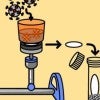
Houston refines hunt for COVID in wastewater
There are many ways to test municipal wastewater for signs of the virus that causes COVID-19, but scientists in Houston have determined theirs is the best yet.

Houston refines hunt for COVID in wastewater
There are many ways to test municipal wastewater for signs of the virus that causes COVID-19, but scientists in Houston have determined theirs is the best yet.
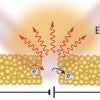
Teamwork makes light shine ever brighter
If you’re looking for one technique to maximize photon output from plasmons, stop. It takes two to wrangle.
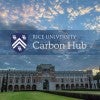
Seven research teams win Carbon Hub funding
Carbon Hub, Rice University's zero-emissions research initiative, has awarded seed grants for seven projects that will rapidly advance its vision for transforming the oil and gas sector into a leading provider of both clean hydrogen energy and solid carbon products that can be used in place of materials with large carbon footprints.
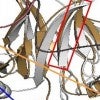
Cancer ‘guardian’ breaks bad with one switch
A mutation that replaces a single amino acid in a potent tumor-suppressing protein makes it prone to nucleating amyloid fibrils implicated in many cancers as well as neurological diseases.

Study aims to help governments maximize profits from oil and gas auctions
Federal and state governments auction leases to oil and gas companies to extract natural resources from public land. A revamp of the auction system — utilizing a new model developed by a Rice University economist — could lead to more competitive bids and, ultimately, more money for governments.

Camera traps reveal newly discovered biodiversity relationship
In one of the first studies of its kind, an analysis of camera-trap data from 15 wildlife preserves in tropical rainforests revealed a previously unknown relationship between the biodiversity of mammals and the forests in which they live.
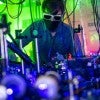
Bottling the world's coldest plasma
Rice University physicists have discovered a way to trap the world's coldest plasma in a magnetic bottle, a technological achievement that could advance research into clean energy, space weather and astrophysics.

Rice team forges path toward geothermal future
Rice scientists have joined a federal project to accelerate breakthroughs in geothermal systems for unlimited, inexpensive energy.
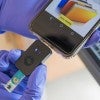
Chip simplifies COVID-19 testing, delivers results on a phone
Programmed magnetic nanobeads paired with an off-the-shelf cellphone and plug-in diagnostic tool can diagnose COVID-19 in 55 minutes or less.

Theory could accelerate push for spintronic devices
A theory by Rice scientists could boost spintronics, a key to creating faster and more powerful electronic devices, including quantum computers.
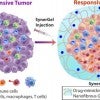
UTHealth, Rice advance oral cancer immunotherapy
Researchers at Rice and the University of Texas Health Science Center at Houston develop a hydrogel that could destroy oral cancer tumors.

Junghae Suh named AIMBE fellow
Rice bioengineer Junghae Suh has been named a fellow of the American Institute for Medical and Biological Engineering.
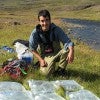
Mark Torres wins Geochemical Society’s Clarke Award
Mark Torres with water samples collected from Iceland's Efri Haukadalsá River in 2016. (Photo by Woodward Fisher)

Brain-to-brain communication demo receives DARPA funding
Wireless linkage of brains may soon go to human testing with $8 million for preclinical demonstrations.
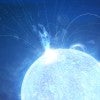
Fermi space telescope offers 'best look ever' at giant flare
Intense light from the April 2020 eruption of a neutron star in a nearby galaxy has given astronomers their first clear look at a type of gamma-ray burst known as a magnetar giant flare.